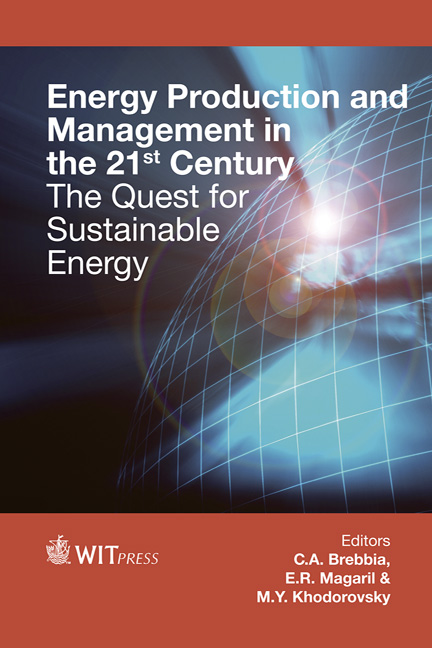Biomass And Waste Incineration CHP: The Co-benefits Of Primary Energy Savings, Reduced Emissions And Costs
Price
Free (open access)
Transaction
Volume
190
Pages
12
Page Range
127 - 138
Published
2014
Size
349 kb
Paper DOI
10.2495/EQ140141
Copyright
WIT Press
Author(s)
F. Levihn & C. Nuur
Abstract
Energy utility companies face trade-offs in navigating through today’s environmental challenges. On the one hand they face intense political, social and environmental pressures to move towards adopting energy systems that incorporate the use of renewable energy resources. By making this transition they would contribute to carbon reduction and mitigate climate change. On the other hand, they need to coordinate their resources and become efficient when investing in new plants or upgrading existing production systems. This paper seeks to address the gains that utility companies can make when replacing older fossil fuel base- plants with efficient combined heat and power (CHP) plants. We discuss the system effects from the changes in production of other units when new plants are constructed. Using one of the largest energy utility companies in Sweden, Fortum, as an empirical point of departure, we analyzed the company’s transition from using coal and hydrocarbons to an increased use of renewables and waste incineration CHP. Our analysis was based on comprehensive production data on CO2, SOx and NOx emissions. Our findings suggest that primary energy consumption drops when older and less efficient fossil plants are substituted for new efficient CHP plants; this drop includes the effect on the remaining production. The benefits in terms of primary energy savings might be even greater than what are achieved in meeting the goal of climate change abatement through reduced CO2 emissions; NOx and SOx emissions are decreased with new biomass CHPs. Waste incineration CHP increase NOx and SOx emissions, when there is less fossil fuel to replace after the use of biomass is extended. In both cases, economic efficiency increases as costs are reduced. Keywords: district heating, environmental impact, primary energy consumption.
Keywords
district heating, environmental impact, primary energy consumption.





